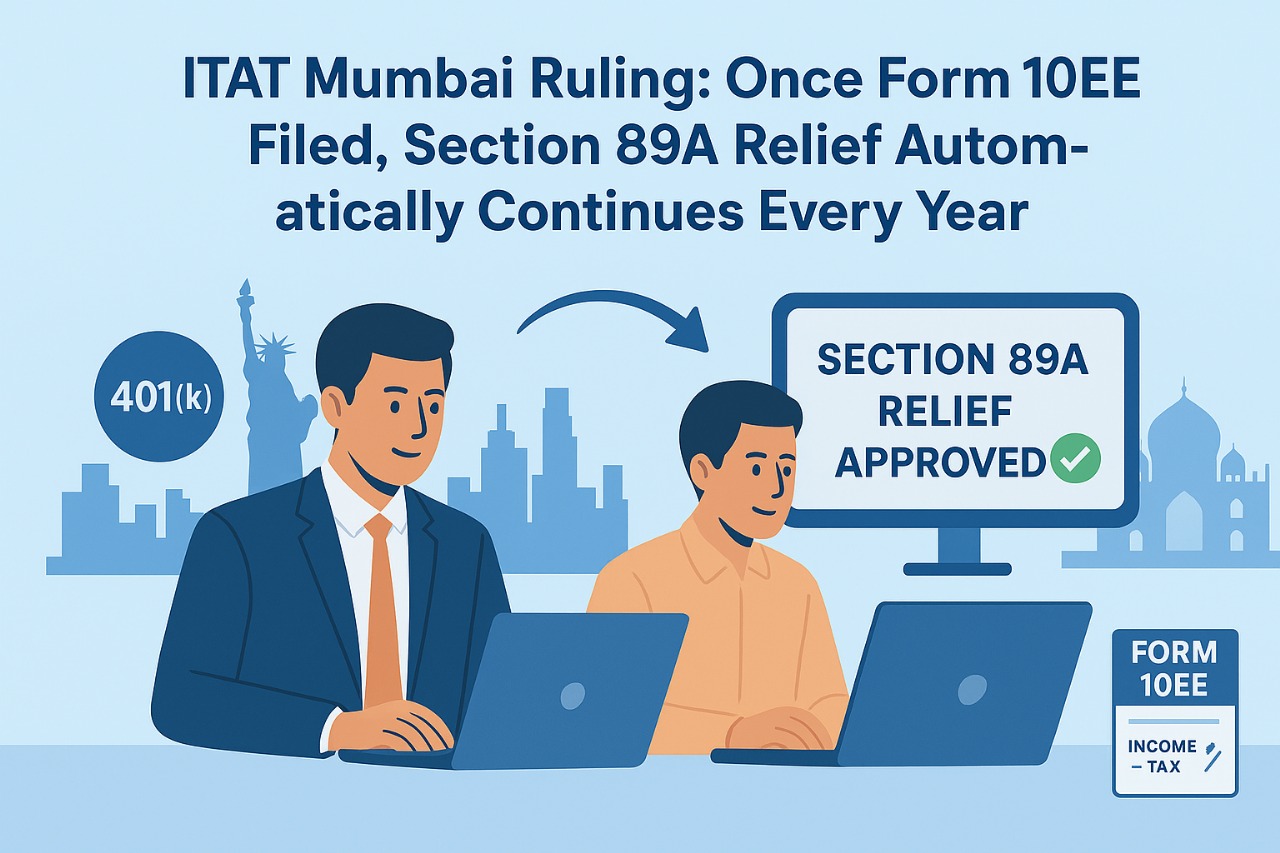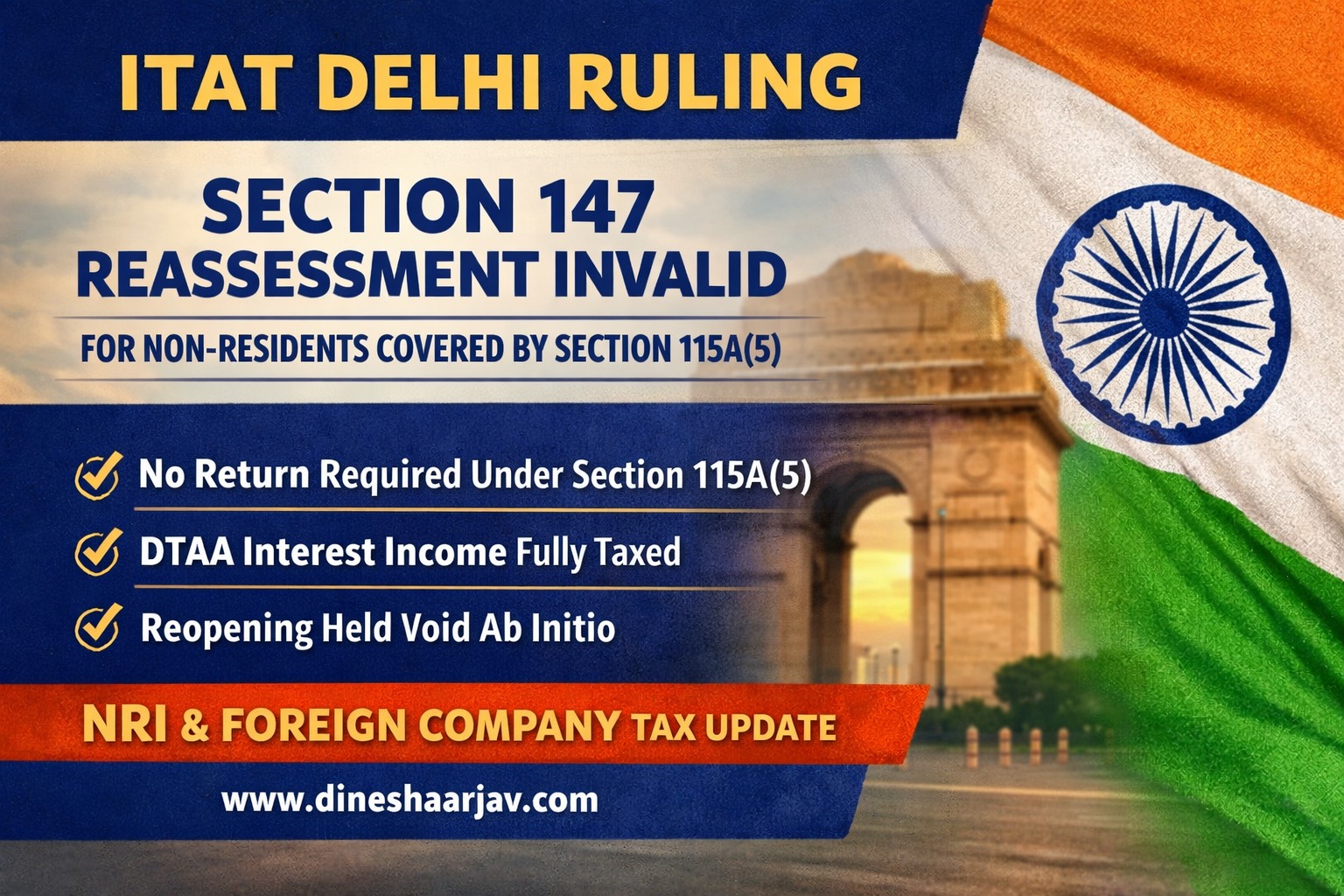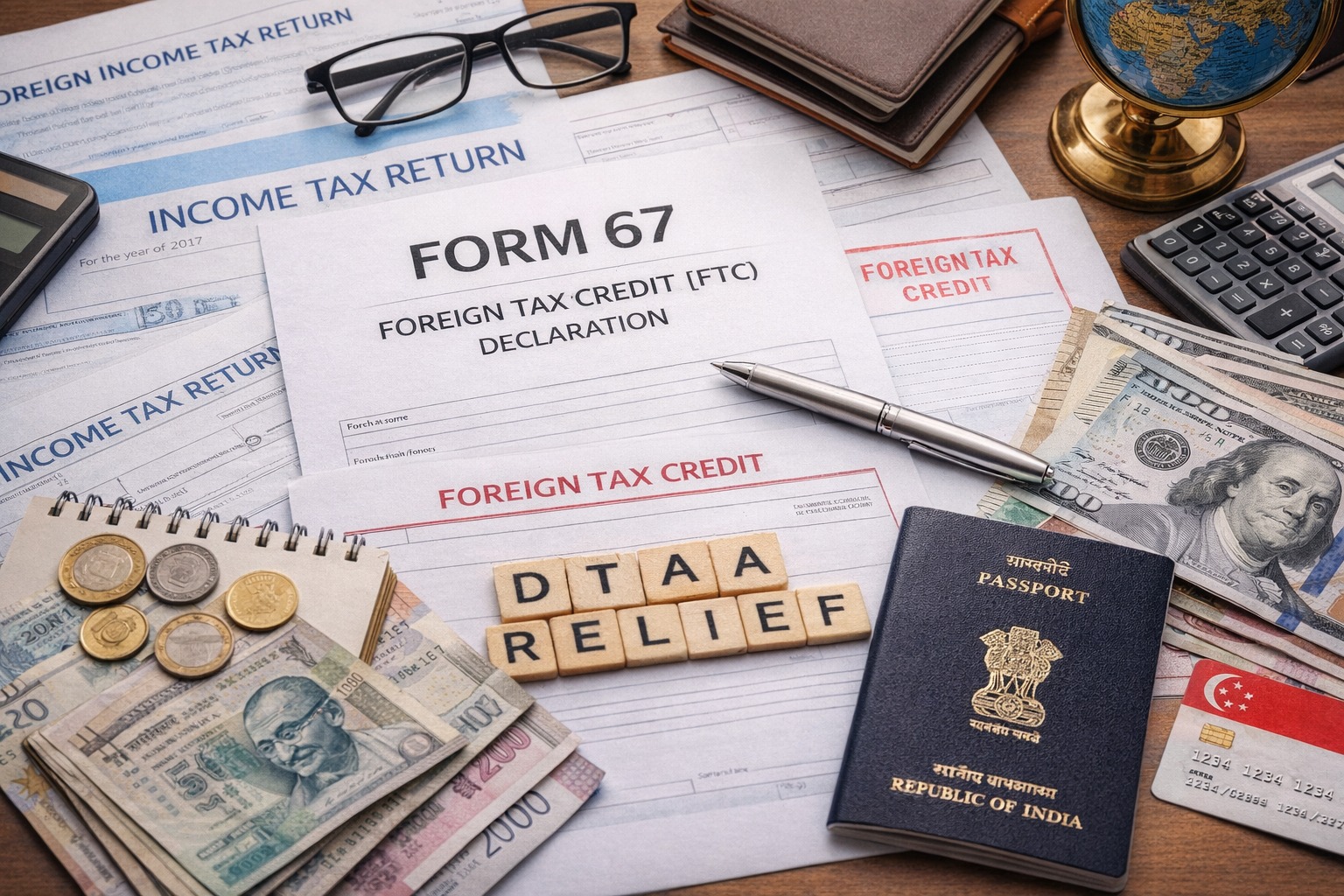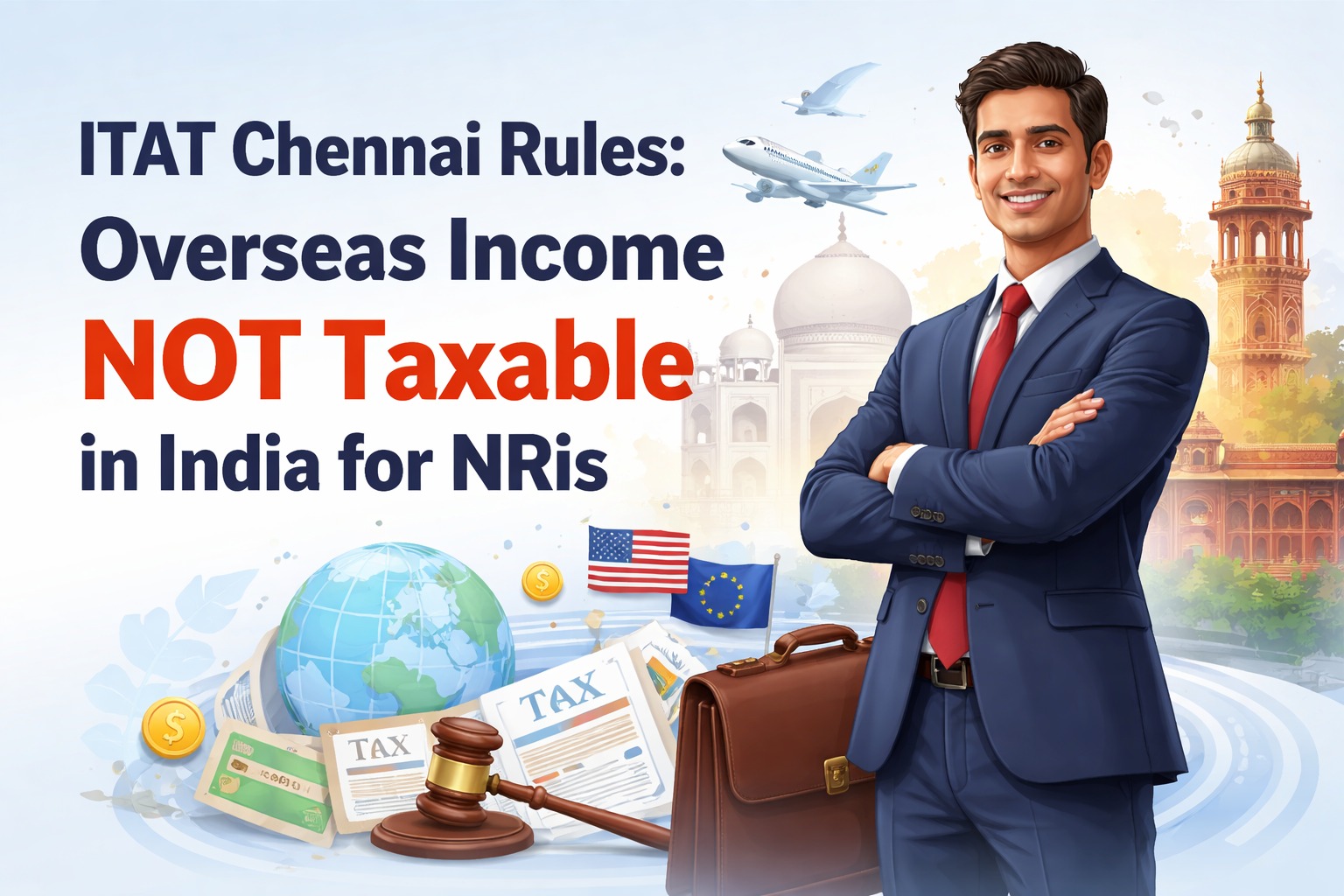 WhatsApp
WhatsApp
 Call Us
Call Us
 Email Us
Email Us
 Whatsapp Community
Whatsapp Community

In a landmark judgment, the Income Tax Appellate Tribunal (ITAT) Mumbai has provided crucial clarity for NRIs and returning Indians holding foreign retirement benefit accounts such as IRA, Roth IRA, and 401(k) in the USA.
The Tribunal ruled that once a taxpayer files Form 10EE under Section 89A of the Income Tax Act, 1961, the option continues automatically for all subsequent assessment years. There is no need to re-file Form 10EE every year.
This decision provides huge relief to taxpayers managing foreign pension or retirement accounts while ensuring no double taxation under Indian tax laws.
Case Title: Jignesh Naresh Jariwala vs Deputy Director of Income Tax (CPC Bengaluru)
Tribunal: ITAT Mumbai, Bench “F”
Members: Shri Narendra Kumar Billaiya (AM) & Shri Anikesh Banerjee (JM)
Assessment Year: 2023–24
The assessee, Mr. Jignesh Naresh Jariwala, an employee of LTIMindtree, filed his income tax return declaring a total income of ₹1.20 crore for AY 2023–24.
He maintained multiple foreign retirement benefit accounts in the USA, including:
He claimed a tax relief under Section 89A of ₹4,34,659 on income accrued in these accounts, which are notified foreign retirement accounts under Indian tax law.
However, the Centralized Processing Centre (CPC), Bengaluru denied the claim while processing his return under Section 143(1) — stating that Form 10EE was not filed for the relevant year.
Is it mandatory to file Form 10EE every year to claim Section 89A relief on income from foreign retirement accounts such as IRA or 401(k)?
The assessee contended that:
After reviewing the relevant provisions of Rule 21AAA(1), (4), and (6), the ITAT Mumbai observed:
The Tribunal set aside the order of the CIT(A) and directed the Assessing Officer to allow relief under Section 89A amounting to ₹4,34,659.
Final Verdict: Once Form 10EE is filed, the option under Section 89A continues automatically for subsequent assessment years. No re-filing required.
This judgment provides major relief to:
Key Takeaways:
Section 89A of the Income Tax Act was introduced to remove double taxation for Indian residents having foreign retirement benefit accounts.
Without this provision, taxpayers could face taxation both abroad and in India on the same income.
Form 10EE is used to opt for deferred taxation — income is taxed only when withdrawn in the foreign country.
As per Rule 21AAA(6), once exercised, this option remains valid for all subsequent years unless the individual becomes non-resident again.
At Dinesh Aarjav & Associates, we specialize in cross-border taxation, NRI tax planning, and DTAA compliance across India, the USA, UK, Canada, UAE, and Australia.
Our team assists:
To ensure no double taxation and complete Indian tax compliance.
If you have foreign retirement accounts or overseas investments, consult our experts today to ensure proper compliance and optimum tax efficiency.
The ITAT Mumbai ruling in Jignesh Naresh Jariwala’s case settles a long-standing ambiguity:
Once Form 10EE is filed, Section 89A relief automatically applies each year — giving NRIs and NRI returning to India the certainty and ease they deserve.
This judgment reinforces the government’s intention to simplify cross-border tax compliance and eliminate double taxation for globally mobile professionals.






